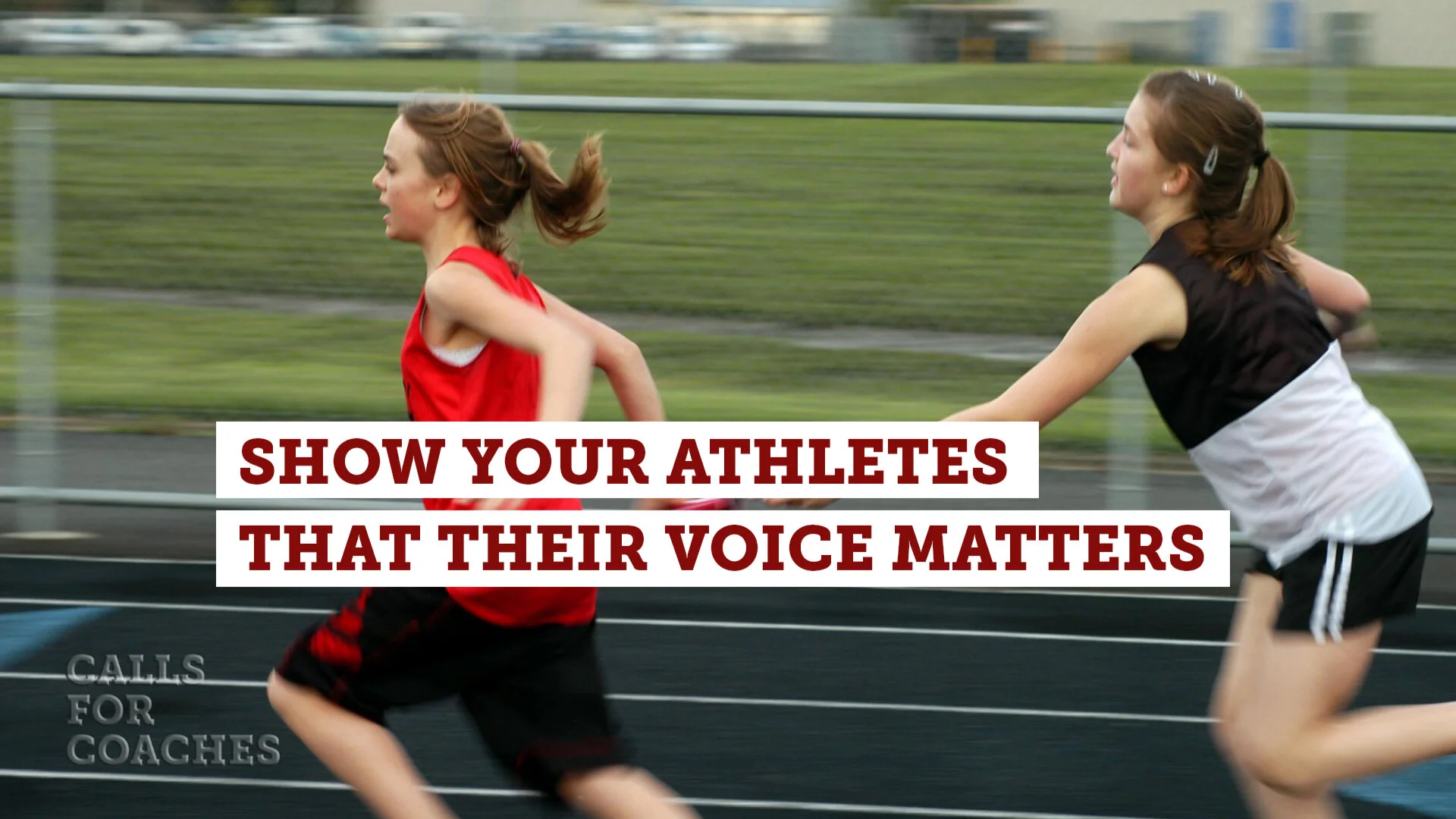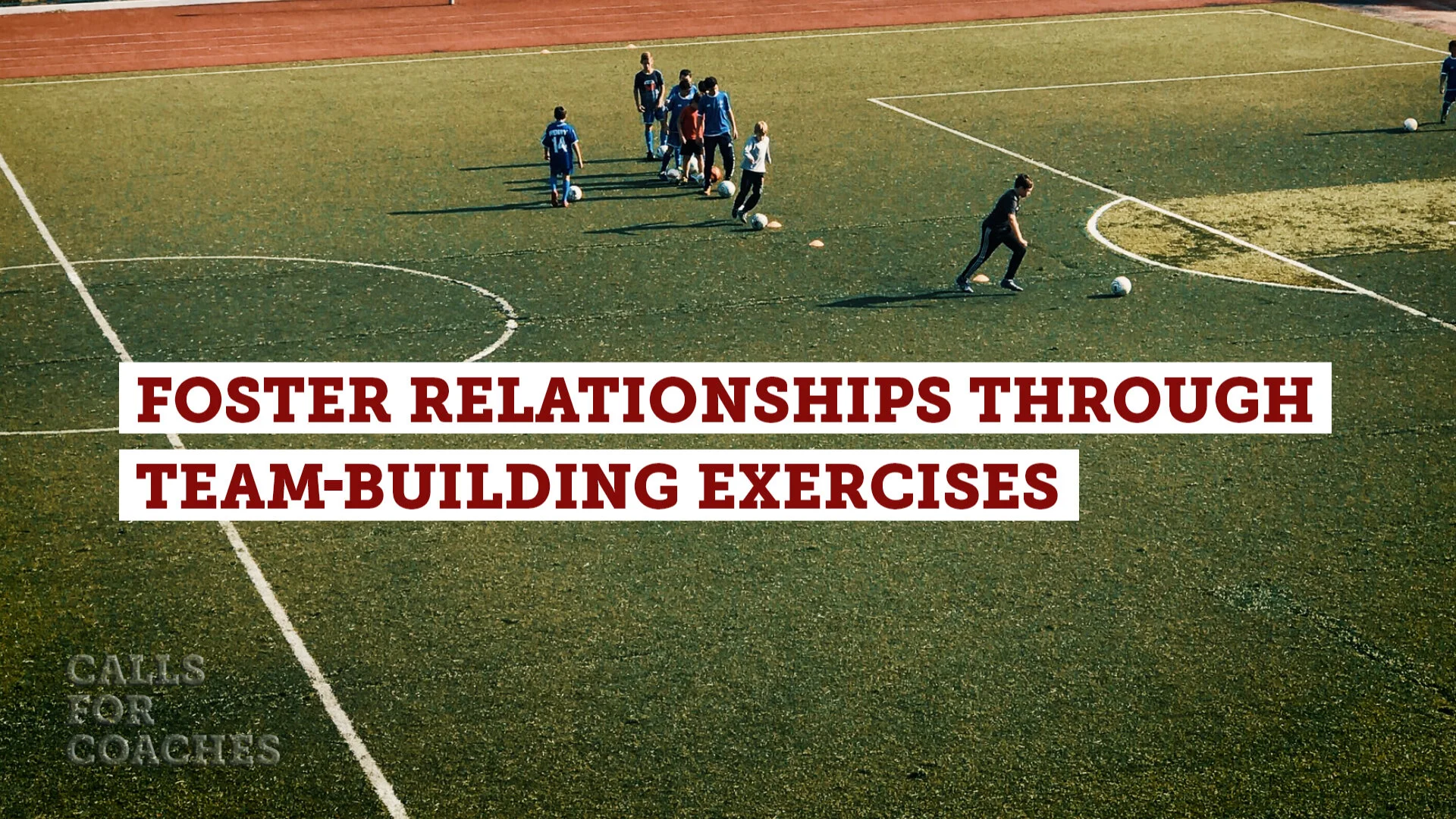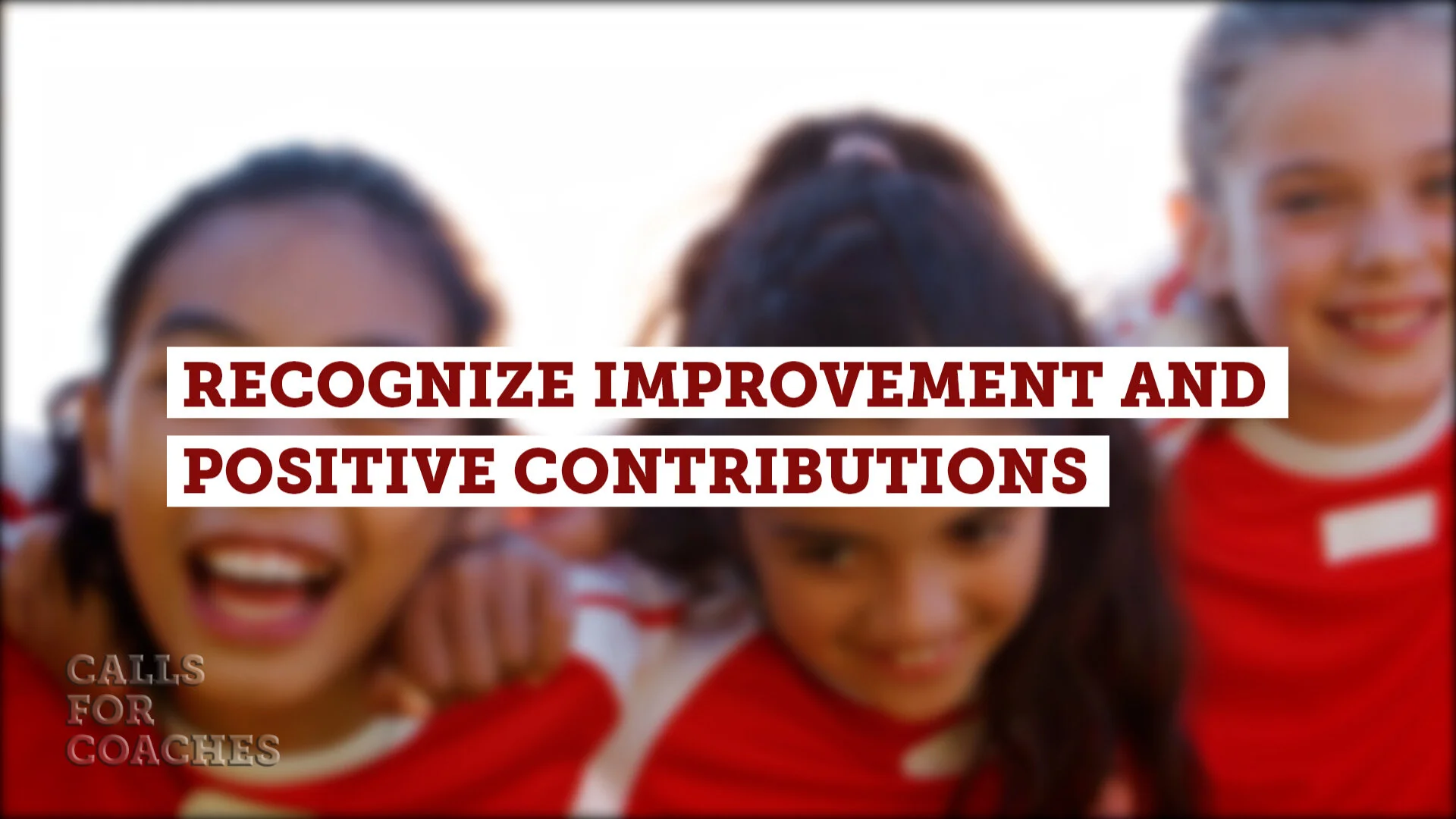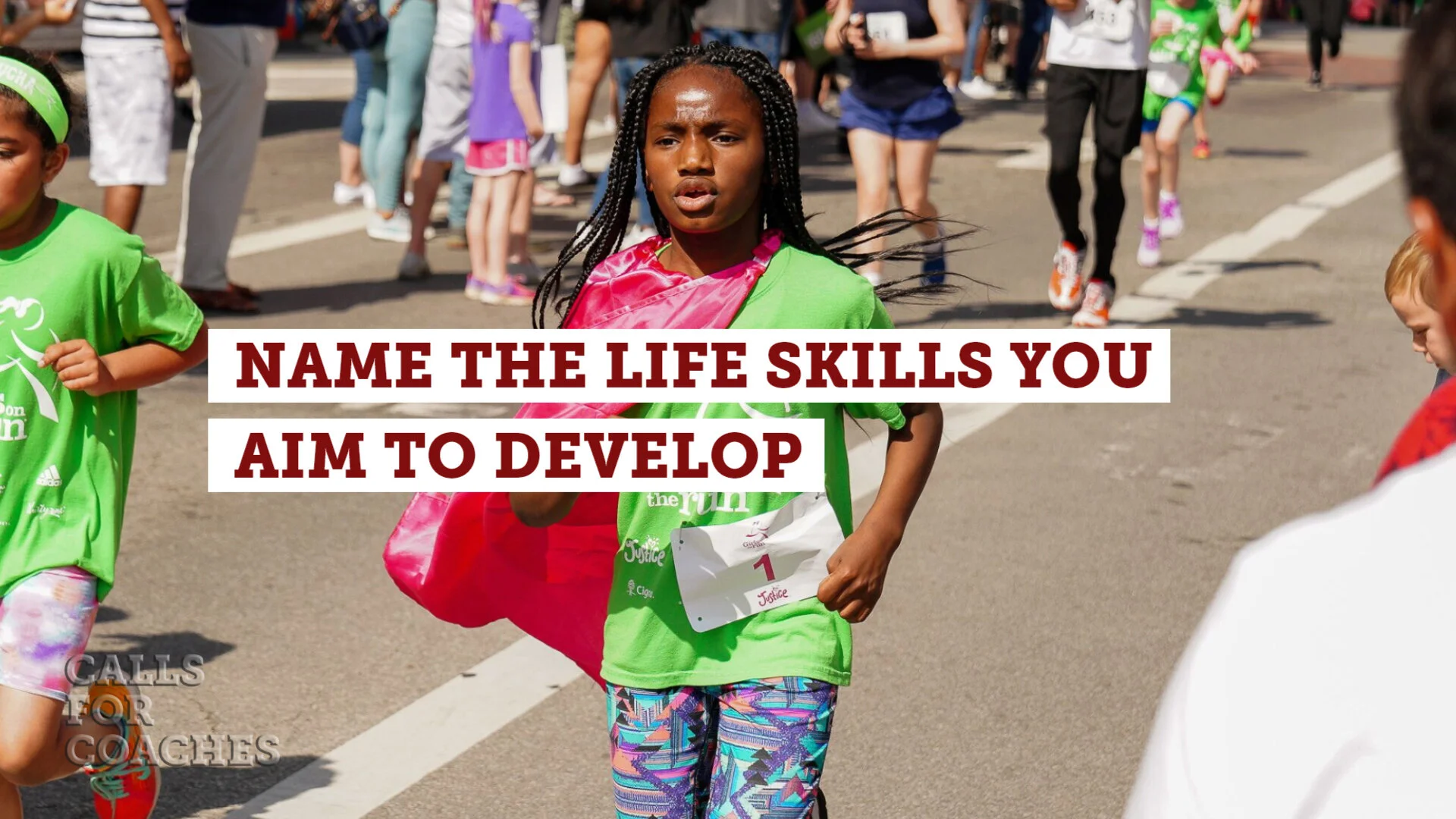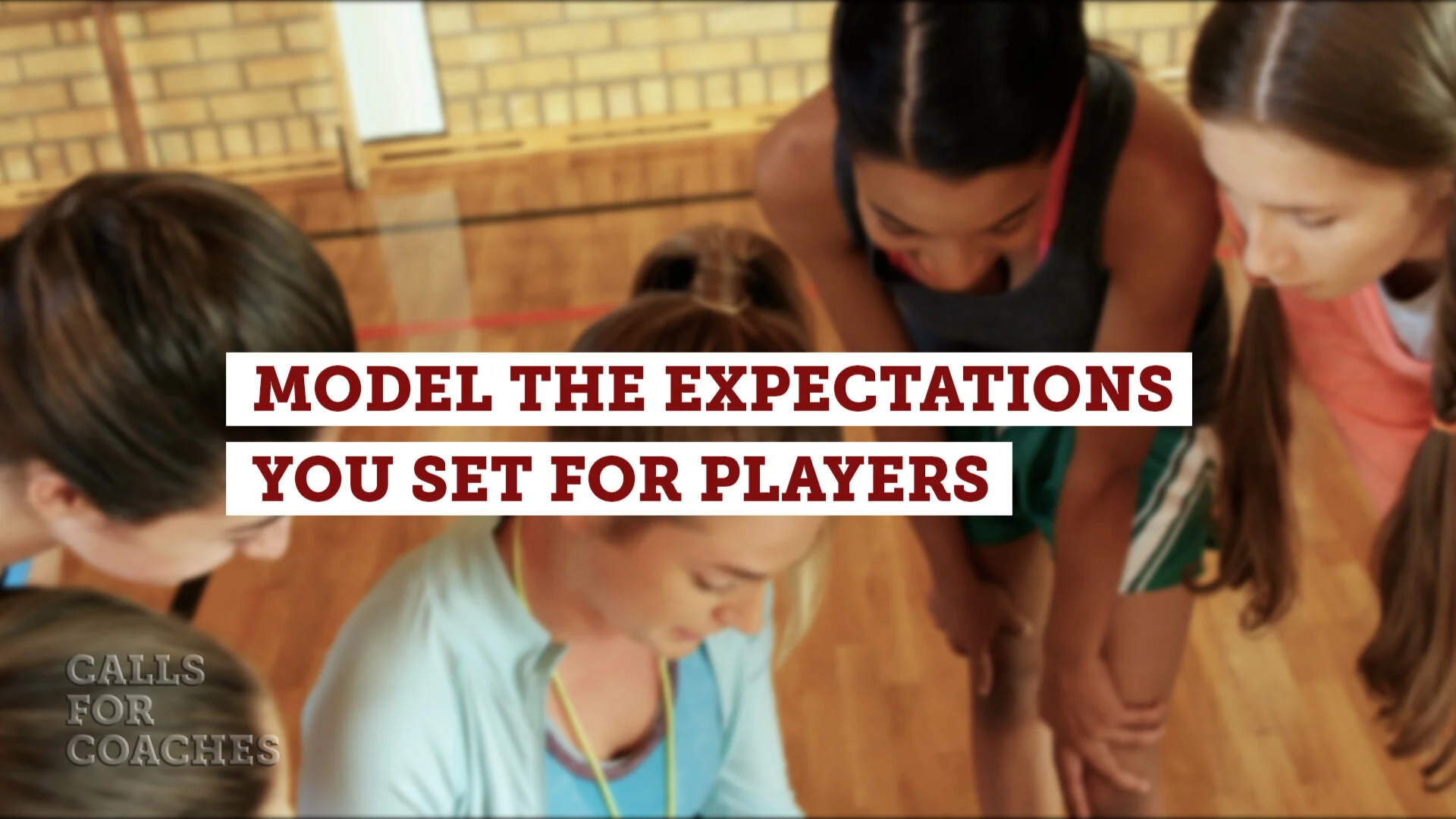When the children you coach are all grown up, what do you want them to say about you? That you helped them win a few games? Or that you provided life skills that made them better friends, parents, workers, and citizens? Our reports, videos and other materials can help develop social and emotional skills.
OUR CALLS FOR COACHES
Working with the Harvard University Graduate School of Education, the Aspen Institute in 2019 identified the research base for the value of coaching for social and emotional skills. We then distilled the findings from that white paper into Calls for Coaches with an easy-to-follow practice checklist. Learn about each below and explore our flexible resources — all of them free.
Note to sport providers: Videos and other materials are designed to fit into existing coach training curricula and can be customized. Contact Project Play for additional information.
01
Build positive adult-youth relationships
Take the time to understand why each child has made the decision to play sports.
PRACTICE SPOTLIGHT
Ask every player which name they prefer and call them by that name
Ask questions to get to know every youth, their families and their motivations
Talk to every youth at every practice and during every game
Talk with youth athletes about how to seek out and connect with other adults they trust
Organize formal meetings with your players throughout the season in order to help them express their feelings, wants and needs
RESOURCE LIBRARY
02
Create a safe space that supports social and emotional skill development
Supportive team culture in youth sport is built by displaying and encouraging positive attitudes and language, caring behaviors and effective emotion management.
PRACTICE SPOTLIGHT
Set high expectations and clear limits on behavior
Get trained in the basics of coaching techniques, including the prevention of physical, emotional and sexual abuse
Start and end practices on time
Establish a code of conduct that prohibits bullying and creates meaningful consequences
Incorporate team-building activities throughout the season to create dedicated opportunities for building relationships among coaches and teammates
Create specific responsibilities to provide leadership opportunities for players, e.g. Stretch Captain, Equipment Captain or Cheer Captain, and rotate these youth leadership opportunities
Allow youth athletes to make and correct missteps as leaders
Create community by adopting practices such as composing a team cheer, selecting a team name, logo or slogan, or incorporating team-building activities into games and practices
Give youth athletes the opportunity to clearly define their goals and objectives
Engage all youth athletes in co-creating and setting positive norms, rules and routines for practices and games and work with them to consistently reinforce the structure
RESOURCE LIBRARY
03
Embody effective leadership strategies that emphasize effort, autonomy and learning
Coaches should not limit celebration to wins — celebrate effort and acknowledge that mistakes are a part of learning.
PRACTICE SPOTLIGHT
Give shout-outs for achievement, effort and improvement at the end of the practice: players to players, coach to players, and players to coach
Encourage players to cheer for each other
Establish a ritual for letting go of mistakes, e.g. a brushing motion across a shoulder
Create a season-ending event to celebrate skill attainment, achievement and growth
RESOURCE LIBRARY
04
Prioritize and provide opportunities for direct skill building and practice
Coaches should identify and communicate the comprehensive set of skills (physical, social, emotional and cognitive) they hope to develop in their youth athletes.
PRACTICE SPOTLIGHT
Identify and share the particular skills you are aiming to build in your athletes — whether that’s working as a team, staying motivated, empathizing with teammates or other key skills
Encourage parents and caregivers to reinforce these skills by talking about what they are, what they mean and what these behaviors can look like at home
Have players set goals and intentions regarding their physical, social, emotional and cognitive skill development
Establish a circle-up ritual at the start of every practice and game and a reflection ritual at the end of every practice and game that includes discussion of the skills being prioritized
Have conversations about how to use experiences and skills from games or practices in other settings, e.g. discuss how mistakes are a part of learning and improving
Resource Library
05
Model good character and decision-making
As leaders, coaches should model positive behavior in their interactions with other adults and youth athletes, with opponents and referees, and particularly when mediating conflicts.
PRACTICE SPOTLIGHT
Participate in drills with players
Practice the positive interactions that are encouraged of players
Practice self-care and engage in reflection around your own social and emotional well-being
Be cognizant of your own and others’ perspectives
Manage conflicts with calmness and clarity, acknowledging player feelings and emotions
RESOURCE LIBRARY
06
Seek opportunities for support, training and professional development
How to Coach Kids
The How to Coach Kids website aggregates resources to train coaches by sport and topic in a new, free 30-minute course on the general principles of coaching children through age 12. Co-developed by Nike and the U.S. Olympic & Paralympic Committee with the help of the Aspen Institute, this course helps new and novice coaches plan a great practice, keep kids safe, use teaching strategies to help kids learn and work with families
Coaches should have the mindset that there is always more to learn, and that there is always room for improvement.
PRACTICE SPOTLIGHT
Participate in learning opportunities with other coaches in the league or in the community such as observing other coaches’ practices or practicing in league-wide professional development
Actively seek out and participate in professional development to grow your coaching skills
Get knowledgeable about coaching techniques that identify and prevent physical, emotional and sexual abuse
Collect athlete feedback and incorporate into practices
RESOURCE LIBRARY
07
Engage with families, schools and other community organizations
Coaches should think about their role in a child’s web of support and join forces with other adults in their lives, especially for reflection and debrief.
PRACTICE SPOTLIGHT
Host a preseason meeting with families to discuss your program philosophy, goals and intentions
Design a practice or family hour for parents/caregivers and siblings
Learn about the language and strategies used in schools or at home and, when possible, reinforce these lessons in practices and games
Collaborate with other coaches to design effective practices
Talk with parents/caregivers about issues arising with their children
Find regular opportunities to assess and share progress with families
Start a conversation around what quality coaching looks like to provide a healthy and positive sports experience for youth across your community
RESOURCE LIBRARY
PROJECT PLAY Teamwork Toolkit
Not sure where to start in changing the culture of youth sports in your community? Our robust DIY resource will help organize your efforts.
ADDITIONAL RESOURCES
Calls for Coaches report
The original Calls for Coaches report offers tips from the Aspen Institute Sports & Society Program and the National Commission on Social, Emotional, and Academic Development to help youth sports coaches develop personal growth in their players.
Practice Checklist
A list of 27 tips and ideas for how to integrate social and emotional development at your first practice, before every practice, on game days, and every day.
Encontre las llamadas en español aqui (Llamadas para entrenadores lista de verificacion)
Coaching Reflection Self-Assessment
Resonant Education in partnership with Aspen Institute Project Play has developed a survey instrument to align with Call for Coaches to gauge coaches’ ability to adopt specific actions that cultivate the development of social and emotional skills in their players. If you would like to learn more about this tool, please contact info@resonanteducation.com.
Coaching to Support Inclusion of Young Athletes with Disabilities
The Calls for Coaches are equally relevant for coaching athletes with or without disabilities. Coaches can use these practices to help foster a more inclusive and adaptive environment that supports the social and emotional development of all youth athletes.
SEL Kernels
These SEL Kernels represent a small scale, personalized approach to social and emotional skill development, and ultimately aim to provide coaches and other adults with a menu of needs and preference-based strategies that are quick, low lift, and easily integrated into team practices.
Worldwide Day of Play Partner Playbook
Created by Nickelodeon in partnership with Project Play, this guide is intended for coaches, camp counselors, afterschool program leaders and others who work with kids — middle school and below — to plan a Worldwide Day of Play (WWDoP) event and support ongoing efforts in their programs. Contains tips for engaging kids and other Project Play resources.
Coaching Social & Emotional Skills in Youth Sports
A companion white paper to Calls for Coaches, developed by researchers at the Harvard Graduate School of Education’s EASEL Lab, that underpins the research base for the value of coaching for social and emotional development in young people.



